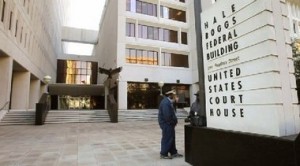“They say love makes the world go round, but that’s not true,” Sal M., who lives in Spencer, MA, said. “It’s money – or more correctly, credit! – that matters. If you don’t have good credit, you can’t do anything in this world. You can’t buy a house, you can’t start a business, you can’t go to school – I can’t even get a car that runs halfway decent because my credit’s all screwed up!”
Tax Liens Can Hurt Your Credit
Many people don’t realize that their tax problems can hurt their credit. When you owe money to the IRS or MA DOR (or both!), and you don’t pay your tax debt, you can wind up with tax liens. Tax liens are public record, which means anyone can find out about them. All of the credit rating agencies use tax lien information against you when determining your credit score.
A good credit score is, as Sal discovered, essential to the way we live our lives today. Even the US Government seems to have figured that out. That’s why there are special incentive programs in place to encourage delinquent taxpayers to resolve their tax issues and repair their credit.
Don’t Try To Fix Your Tax Problems On Your Own!
Working with a skilled, experienced firm that specializes in solving tax problems gives you the widest range of options when it comes to having your tax liens released or withdrawn. The IRS and MA DOR are not in the business of advising tax payers how to best solve their tax problems and restore their credit – they’re focused on collecting the maximum amount they can from you.
You May Qualify for a Fresh Start to Fix Your Credit
The Fresh Start Initiative allows delinquent tax payers who meet specific qualifications to take steps to repair their credit. If you owe the IRS less than $25,000 and can comply with a direct debit payment plan, after you’ve made 3 payments, you can request a lien withdrawal from the IRS.
This is only one of the ways you may qualify for the Fresh Start Initiative. Your experienced tax problem solver will fill you in on other available options to obtain a lien withdrawal. All tax lien withdrawals have a very positive impact on your credit rating. Be aware that you’re required to remain in full compliance with the tax laws going forward, and it’s an opportunity that’s only available once.
Is the Fresh Start Initiative right for you? The best way to get an answer to that question is to consult with an experienced tax professional. Schedule your free, no-obligation consultation today to discover how you can fix your credit and get your life back on track!




Follow Us!